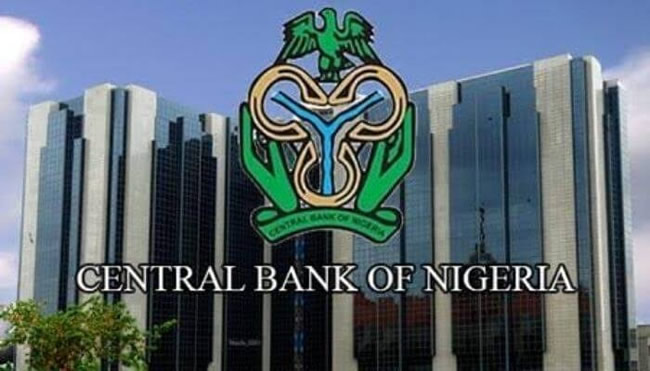Rethinking CBN’s interest rate policy framework
The Nigerian government is perhaps the only economic agent gaining from the current high interest rate prevailing in the economy. It is giving mouth-watering rates and the resultant yields are drawing savvy investors to the easy path to profit. Well, the government is just taking advantage of a phenomenon common in the intricacies involved in […]

Your Money is safe in the bank – CBN assures Nigerians
The Nigerian government is perhaps the only economic agent gaining from the current high interest rate prevailing in the economy. It is giving mouth-watering rates and the resultant yields are drawing savvy investors to the easy path to profit. Well, the government is just taking advantage of a phenomenon common in the intricacies involved in monetary policy management.
However, the government and the Central Bank of Nigeria must not push this too far before it hurts the rest of the economy beyond repair. The misalignment in returns drawing investors to short-term investments could hurt the economy if the real sector is starved of funds.
At a nominal interest rate of 27.25 per cent and an inflation rate of 32.7 per cent, many businesses, especially SMEs and micro organisations, cannot borrow at the effective rates that banks charge them, which must be the MPR plus some margin for administrative costs. Borrowing at costs as high as 30 per cent would simply mean a death sentence for some of these companies. This is the reason why some of them have already gone under.
However, the government is able now to borrow at rates of about per cent plus some margins. This is the cost at which the federal government is offering for its short-term debt instruments that mature within a year or so. The government sells its 91-day, 184-day, perhaps 270-day, and 364-day securities at such high rates and yields, which have become quite attractive to investors, including foreign investors.
- Gombe to build 23 new secondary schools, enrol 8,000 girls annually
- Again, NNPC increases petrol price
Consequently, investors are flocking into the short-term end of Nigeria’s fixed-income securities market and the securities are registering over-subscription, obviously a reflection of the high level of interest in them. This is happening in both CBN’s OMO and government treasury bills operations.
In the latest offers by the CBN, yields on some of these securities have risen as high as 24 per cent, as the monetary authorities raise the interest rates on these assets. The yield comes because these zero-coupon assets are sold at discounts, and the higher the discount rates, the higher the yields that investors earn. Investors evaluate the profitability of their investments in such assets based on these yields.
Now, why is the government offering such high interest rates or discounts? First, this has to do with the current interest rates in the country. The CBN has raised its monetary policy rate this year by 850 basis points, or 8.50 percentage points. This is what raised the MPR to its current level of 27.25 per cent.
The CBN has made it clear that it has pursued this hawkish approach to monetary policy to tame the inflationary pressure that Nigeria has been experiencing. The reasons for this policy approach can be summed up in the following ways.
The first purpose is to restrain the spending power of individuals and companies by raising the cost of funds, another name for the interest rate. This is perhaps the most cited reason for raising interest rates by central banks.
As the cost of funds is raised, it is argued, that economic agents, including households and firms, will be less able to access funds to spend. As this continues, the amount of money being spent will fall and therefore the pressure on the general price level will decline.
As we know, the effectiveness of this policy has been the subject of arguments, and will not end soon. While it could have some impact, how tangible that impact is remains contested in many places.
The other reason for the hike in interest rates is to reduce the difference between the interest rate and the prevailing inflation rate. That difference is called the Real Interest Rate. When Inflation is higher than the interest rate, the Real Interest Rate is negative, and vice versa. No investor or saver wants to earn a negative return on his financial assets. This influences the activities of typical investors. They want to put their funds into securities that earn at least the same rate as the inflation rate.
So, inflation is responsible for the phenomenon described above: the appeal of interest rates to potential investors who want to put their funds into the best possible assets. Those assets happen to be government-backed, including treasury bills. By offering the high rates described above, the government takes advantage of the riskless nature of its assets, because investors convince themselves that governments will not default to repay the debts.
This explains the behaviour of these investors. What they, Nigerians and foreigners alike who flock to the treasuries, are doing is that they are making a riskless profit by investing in assets whose issuer cannot default. The result of this is already evident.
In the second quarter, capital importation into the country was $2.6b, a decline from the $3.38b in the first quarter. The point of interest here is not just the decline, but that 53.9 per cent of the second quarter inflows went into foreign portfolio investment.
This should be one of the factors that CBN should consider in the next phase of its interest rate decisions. Raising interest rates will surely draw investors to riskless assets, but the economy will pay for this somehow. As for inflation, there is no strong basis to expect it to abate soon.
